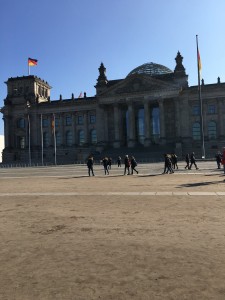It was clear that citizens of the GDR went into the reunification with resentment and dissatisfaction with their former restraining government. However, as life in the unified Germany grew harder, they began to over look all the harsh treatments and start to miss life in the GDR.
When the two countries unified, East Germans were forced to change various aspects of their life. The East Germans suffered massive job losses, and since schools in the GDR were not considered sufficient, were under qualified to find similar jobs (After Fall of Berlin Wall). This caused them to not only miss life in the almost fully employed East, but also they felt the absurd propaganda of the East showing the greed of capitalism was no longer so absurd (Majority of East Germans Feel Life Better Under Communism).
With the resentment of capitalism came the thoughts that maybe the GDR was not so wrong in the first place. Not only did the East Germans lose their jobs and basically their livelihood, they even lost their products. Since the GDR restrictions meant to Western goods, they had East German versions for almost every product. After reunifying, East Germans could no longer find the products they grew so accustomed too. They began to miss the products and even their life in the east. This nostalgia became known as “Olstagie” (Germany’s Disappointing Reunification).
The East Germans were still aware of the ridiculous standards the GDR forced citizens to live by, but they still found themselves missing the simple life of the East. They had jobs and they even had their favorite products. This longing for what they used to have temporarily over shadows all the struggles the GDR caused.
